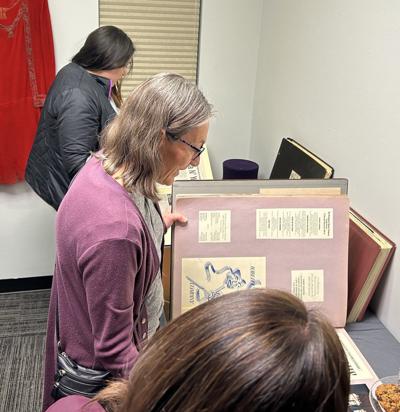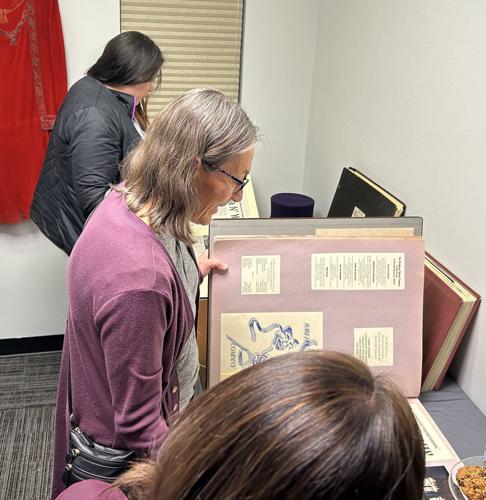Theater can be very powerful.
Sometimes, that power is intense. You walk out of the theater uplifted and laughing; or you exit slowly with red eyes, a runny nose, and the feeling that you’re a limp rag that’s gone through the ringer.
That kind of intensity is not that common, though. Plays are usually crafted to work on viewers in a more subtle fashion. Playwrights prefer to leave breadcrumbs rather than force feed audiences a whole loaf. So, most live theater requires some leaning in on the part of patrons. The adage is “Leave them wanting more,” after all.
That doesn’t mean you won’t have an emotional response, only that the response may be delayed after mulling over a performance for hours or even days; after investing the curiosity to ask, “How does this relate to my own life?” For my money, those sneaky and persistent plots make for the best plays.
No matter the type of influence – full frontal or sly and clever -- it’s not often that watching a play actually affects someone to the point of changing their behavior. Usually, the play is digested, processed, then filed away.
However, for at least one patron who attended last month’s show at the Warehouse Theatre Company – Lauren Gunderson’s “The Book of Will” – the emotional response to the play led to direct action. As a result, the WTC will have a better grasp on its own storytelling history.
Now, I must say up front that I am sworn to secrecy and cannot reveal that patron’s name as they wish to remain anonymous. So, for easy reference, we’ll call them “Page.”
I love the mystery and intrigue of the false name, by the way. Although there’s no robbing or swordplay involved, it puts me in mind of Robin Hood or Zorro. A do-gooder doing good for good’s sake. Plus, let’s be honest, it’s really fun to be the one who knows the secret and to be deemed worthy of keeping it.
At any rate, Page took note of a central plot point of “The Book of Will”: loss and legacy.
Henry Condell and John Hemmings realize Shakespeare’s works will be gone forever if they don’t do something. So, they scour the countryside to gather Will’s plays into a single volume. After overcoming the odds, they’re able to reach their goal, create the book that has come to be known as the First Folio, and preserve the memory of the man who wrote the greatest works in the English language. Quite a legacy.
Page absorbed the story and revisited that WTC experience in her memory for a few days as the subtle power of Gunderson’s play worked its magic. The theme of loss and legacy kept circling around in Page’s head. Finally, because the thoughts were sparked by a Warehouse Theatre production, a central question emerged in Page’s mind: “Who is preserving the remaining memories from the history of the Warehouse Theatre Company?”
With a determination fueled by last weekend’s 75th Season Celebration, Page moved from enthusiast to action-taking benefactor. Knowing that the WTC maintained a set of scrapbooks for many years and that those scrapbooks were unwieldy and so remain hidden away except for special occasions, Page hatched a plan: gather all the scrapbooks and their historical content and have everything digitized.
The next step was to convince the theater company that this was a worthy and necessary project.
“I know there won’t be time to get it done before the celebration, but we have to do something to preserve the history of the Warehouse," she said. "If anything should happen to the scrapbooks, all those memories would be lost. That’d be awful."
“If we can get them into a digital form, they’ll become much more accessible to the public,” she noted.
Past WTC members and patrons could easily satisfy their nostalgia. Future generations could have a sense of their ancestry.
The pitch was met with the blessing of the company, so Page resolved to find a local printer to digitize the scrapbooks.
Immediately, Page met the same challenge faced by Condell and Hemmings in the play. Namely, finding a printer with machinery large enough to bring the project to completion. The largest books measure 17 by 36 inches when open. To scan a document that size requires special equipment. After reaching out to several companies, Page found a willing helper.
Rick Baumgardner of Baumgardner Photography agreed to take on the challenge. The first scanning effort required some problem solving. Fortunately, Baumgardner was invested and committed to making this project come to fruition. Soon enough Page received a file with the full contents of Scrapbook No. 10. Success!
As many attendees of the Warehouse Theatre’s 75th Season Celebration can attest, there is something about holding history in your hands – the feel, the smell – that can’t be replaced by digitized media. Several patrons lingered in the room set aside for browsing through the scrapbooks and looking at costume pieces from plays-gone-by. For as long as possible those books will be kept and preserved by the WTC.
But they won’t last forever.
And precious few people get to see them.
Thanks to a generous and determined supporter, a patron taking action because both heart and mind were energized by the power of a theatrical experience, that’s about to change. Thanks to Page, the full community that is the Warehouse Theatre Company will have full access to its heritage.
That is a legacy.






(0) comments
Comments are now closed on this article.
Comments can only be made on article within the first 3 days of publication.